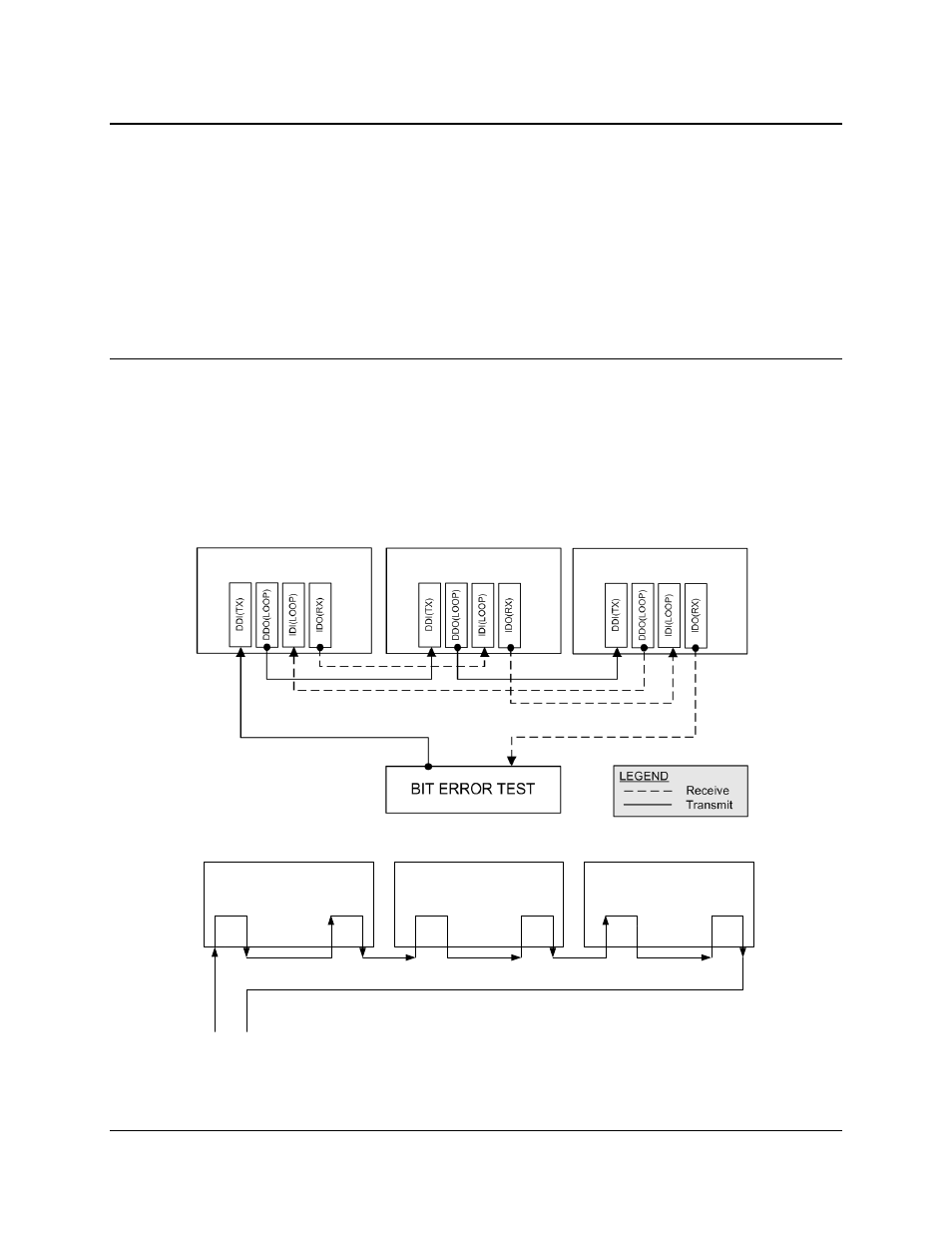9 rx buffer clock = insert (d&i only), 10 single-source multiple modems – Comtech EF Data CDM-600/600L User Manual
Page 164

CDM-600/600L Open Network Satellite Modem
Revision 3
Clocking Modes and Drop and Insert (D&I)
MN/CDM600L.IOM
8–10
8.9
Rx Buffer Clock = Insert (D&I only)
The E1 or T1 clock recovery from the IDI G.703 port serves as the Rx Buffer reference. In
addition, the recovered data is the E1/T1 input to the Insert Mux. If the Rx G.703 recovery circuit
detects no activity at IDI input, or cannot detect the expected frame format, Buffer Clock = Rx
Satellite will be chosen as a fall-back.
If ‘Insert’ is not the selected buffer clock reference, the clock and data from the IDI port is
ignored, and a new E1/T1 frame is generated. The time slots coming from the satellite are then re-
inserted into the selected timeslots of this new blank frame, and output on the IDO port.
8.10 Single-Source Multiple Modems
Two ways to connect a single T1 or E1 stream to several modems are by looming or daisy-chaining
modems. Looming method is illustrated in Figure 8-5, and Figure 8-6 illustrates the daisy-chain
method; each requires the RX Buffer Clock = Insert setting.
• Assign all timeslots to not overlap.
• Assign modems to number of TX/RX channels as required.
Figure 8-5. Single-Source Multiple Modems (Looming)
DDI
DDO
IDI
IDO
MODEM
MODEM
MODEM
Terrestrial Trunk
Multiple Modem Drop & Insert Application: This application shows how the loop is extended
to one or more additional modems.
DDO- IDI connection may be made internally using Loop = Y under D&I menu.
IDI
Figure 8-6. Single-Source Multiple Modems (Daisy-chain)
